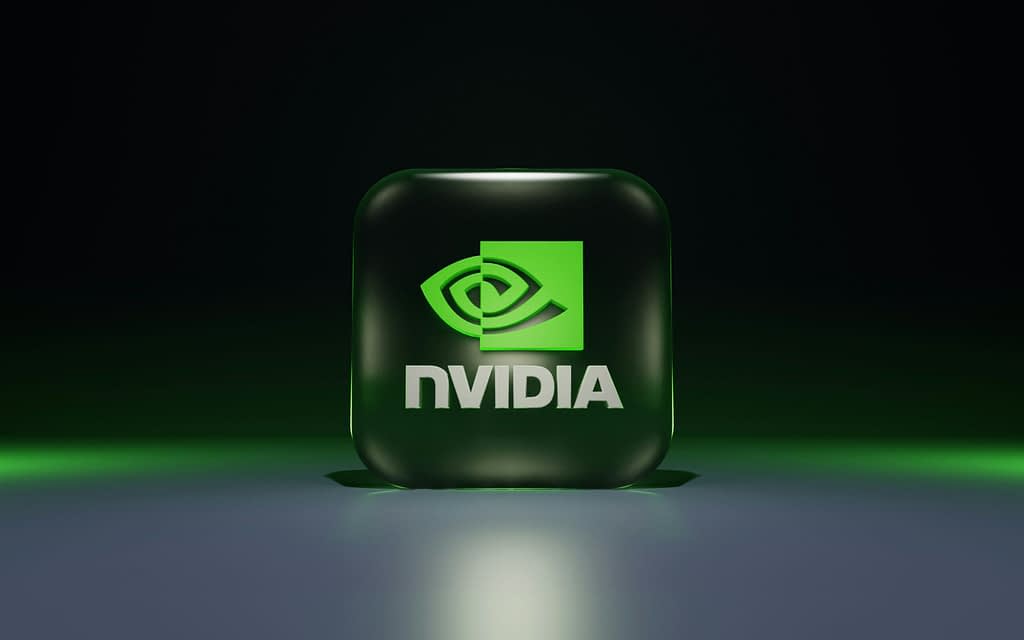Nvidia Corp., the global leader in artificial intelligence and AI chips, has released results that reveal fundamental changes in the global technology landscape. The company faces growing competition from Chinese firms and an $8 billion revenue loss due to trade restrictions, yet simultaneously predicts exponential growth in AI infrastructure. For investors, the current situation presents a complex challenge with potential for record returns alongside significant risks.
Chinese Competition Reaches Technological Sophistication
Jensen Huang, CEO of Nvidia, confirmed in a recent interview that Chinese competitors have significantly advanced in artificial intelligence. Huawei Technologies, a key player in China’s AI technology market, has become “quite formidable” according to Huang.
Huawei’s latest AI chip demonstrates performance similar to Nvidia’s H200, representing a significant technological milestone for Chinese companies. This development shows that:
- The gap between American and Chinese AI technologies is rapidly narrowing
- Chinese companies successfully replace American suppliers with domestic solutions
- Tencent Holdings and other major buyers turn to local alternatives
Financial Impact of Trade Restrictions on Investment Results
American export restrictions to China have substantial financial implications for Nvidia. The company expects to lose approximately $8 billion in just one quarter, representing a significant portion of total revenue.
Despite these challenges, Nvidia forecasts revenue around $45 billion in the second fiscal quarter ending in July 2025. These projections met analyst expectations and helped company shares rise 4% in extended trading.
Blackwell Architecture as Competitive Advantage
Nvidia continues ramping up production of its latest semiconductor architecture, Blackwell, which represents a key element of future growth. The company expands its offerings to include complete computer systems, enabling faster deployment of more sophisticated AI technologies.
Key financial indicators for the first quarter of 2025:
- Total revenue increased 69% to $44.1 billion
- Data center results reached $39.1 billion
- Gaming division generated $3.8 billion, exceeding expectations
- Earnings per share reached 96 cents (excluding one-time items)
Global AI Infrastructure Expansion as Investment Opportunity
Jensen Huang emphasized that every nation now considers artificial intelligence a crucial component of the next industrial revolution. AI infrastructure becomes a fundamental pillar of modern economies, creating enormous investment opportunities.
Nvidia plans European expansion – Huang confirmed visits to France, the United Kingdom, Germany, and Belgium. These steps indicate a market diversification strategy in response to Chinese restrictions.
Regulatory Challenges and Their Impact on Stock Returns
The company faces regulatory pressure not only in the USA but also in China. Chinese authorities investigate whether compliance with American export controls unfairly benefits competitors in the Chinese market.
Nvidia warned investors about possible financial sanctions and business activity restrictions in China. These risks may affect the company’s long-term investment performance.
Market Position and Future Outlook for Investors
Nvidia maintains a dominant position with approximately 90% market share in AI accelerators. The company heads toward annual revenue approaching $200 billion, representing growth from $27 billion just two years ago.
Market capitalization exceeding $3 trillion makes Nvidia one of the world’s most valuable technology companies. For investors, this means:
- Potential for continued exponential growth in AI
- Risks associated with geopolitical tensions
- Opportunities in new markets outside China
- High standards expected by the investment community
Strategic view for Investors in 2025
Nvidia’s current situation represents a classic example of high risk coupled with high potential returns. The company remains a technological leader with revolutionary products but must navigate a complex geopolitical environment.
Investors should consider the long-term perspective where AI infrastructure will play a crucial role in the global economy. Market diversification and continued innovation in Blackwell architecture provide a solid foundation for future growth, despite short-term challenges in the Chinese market.




